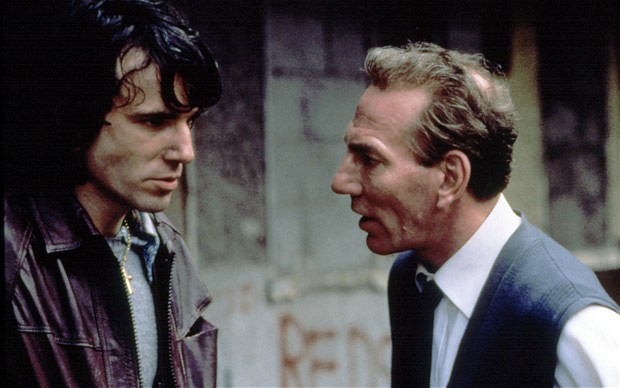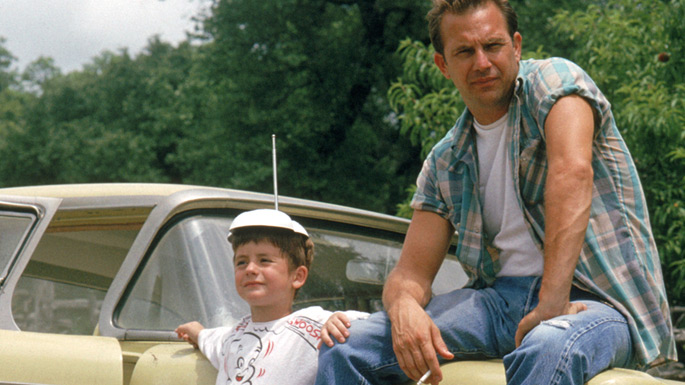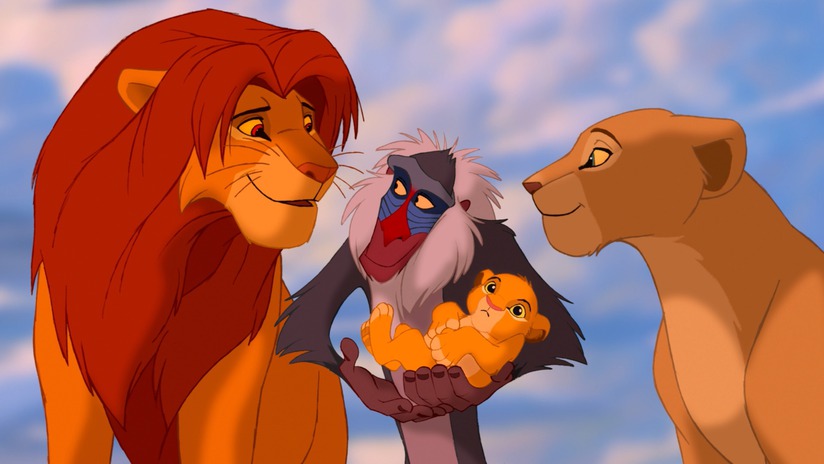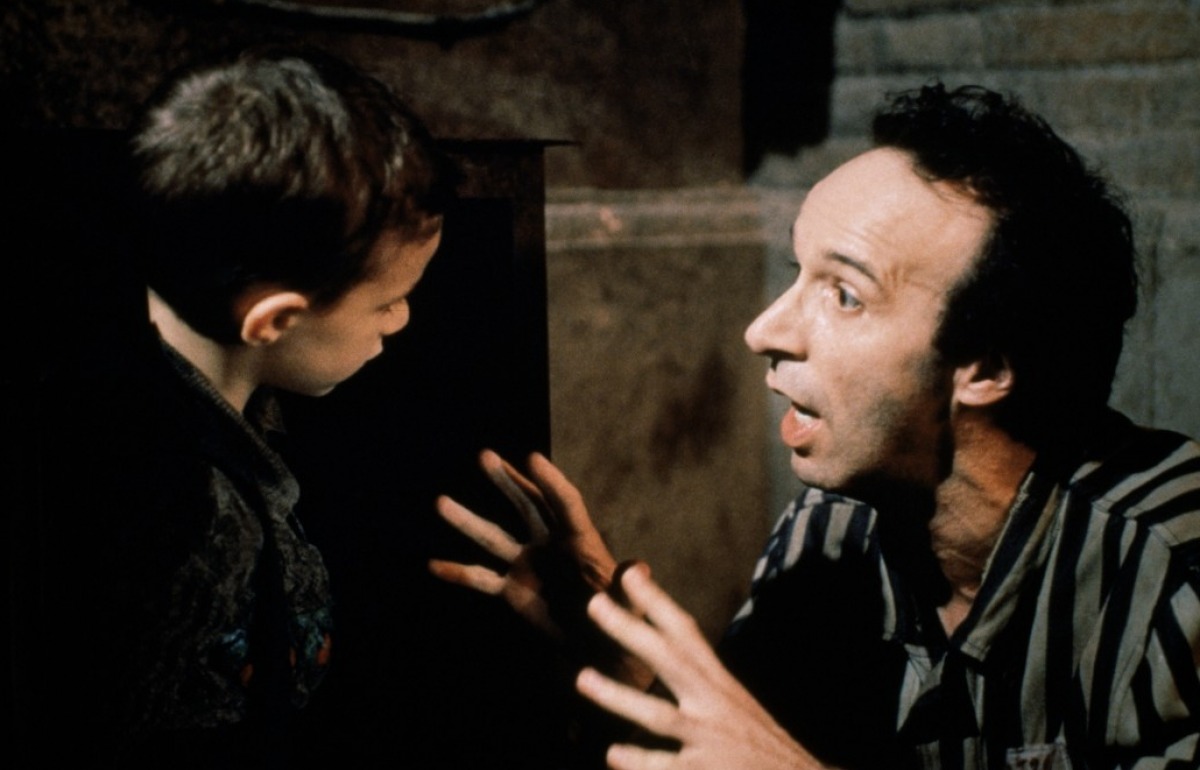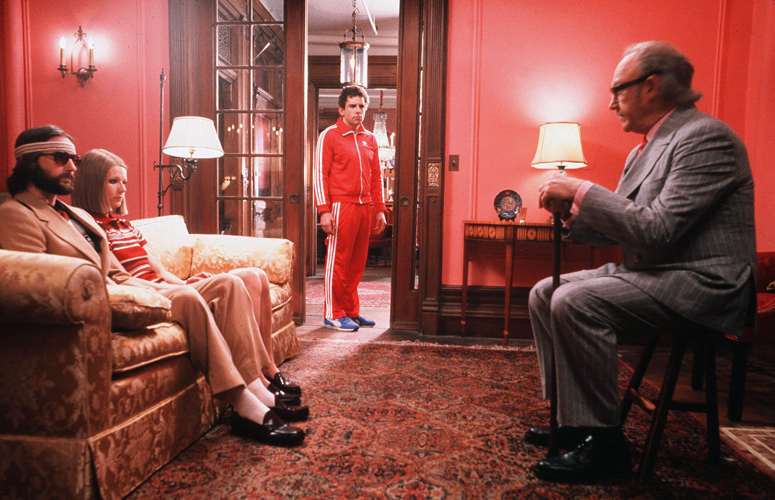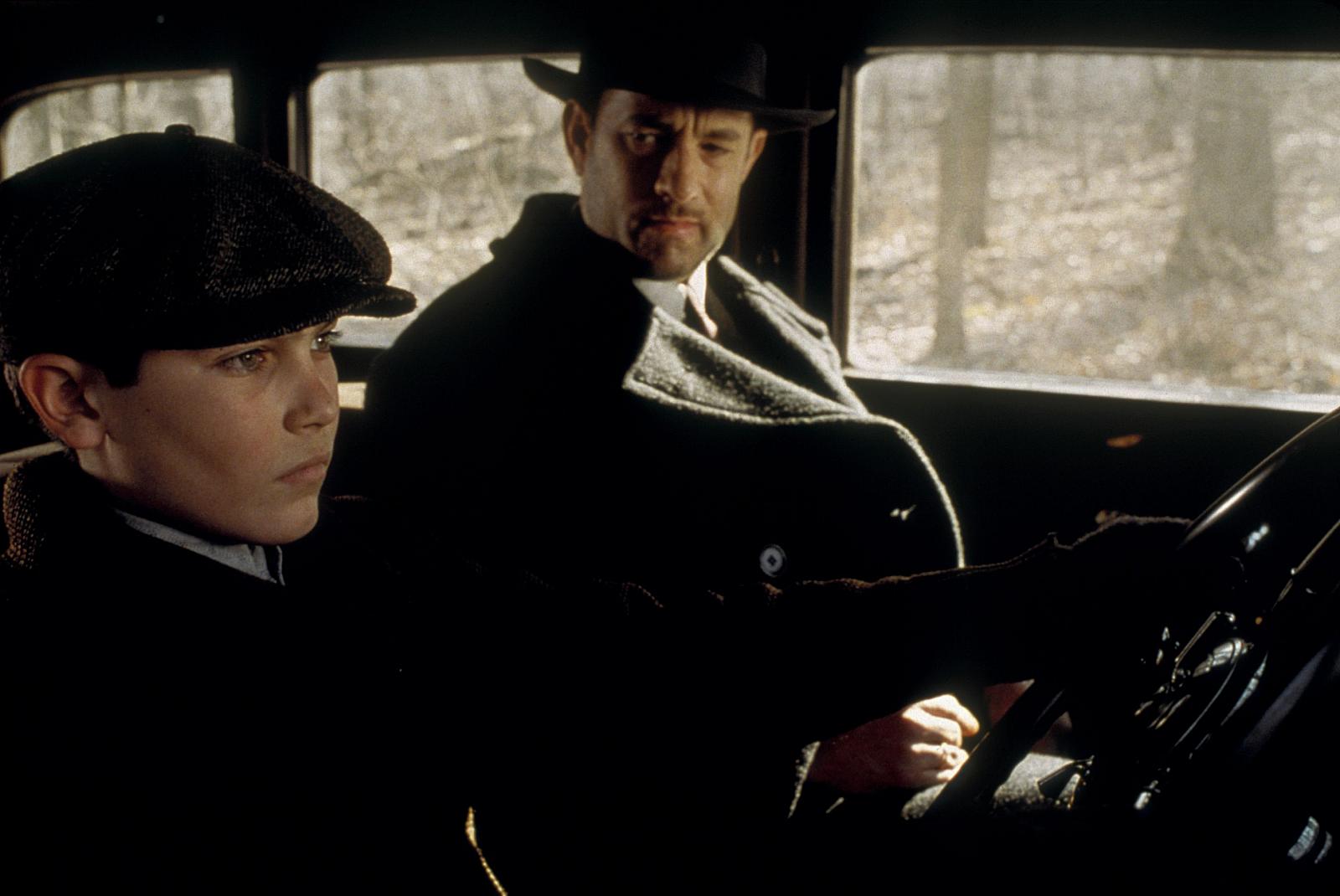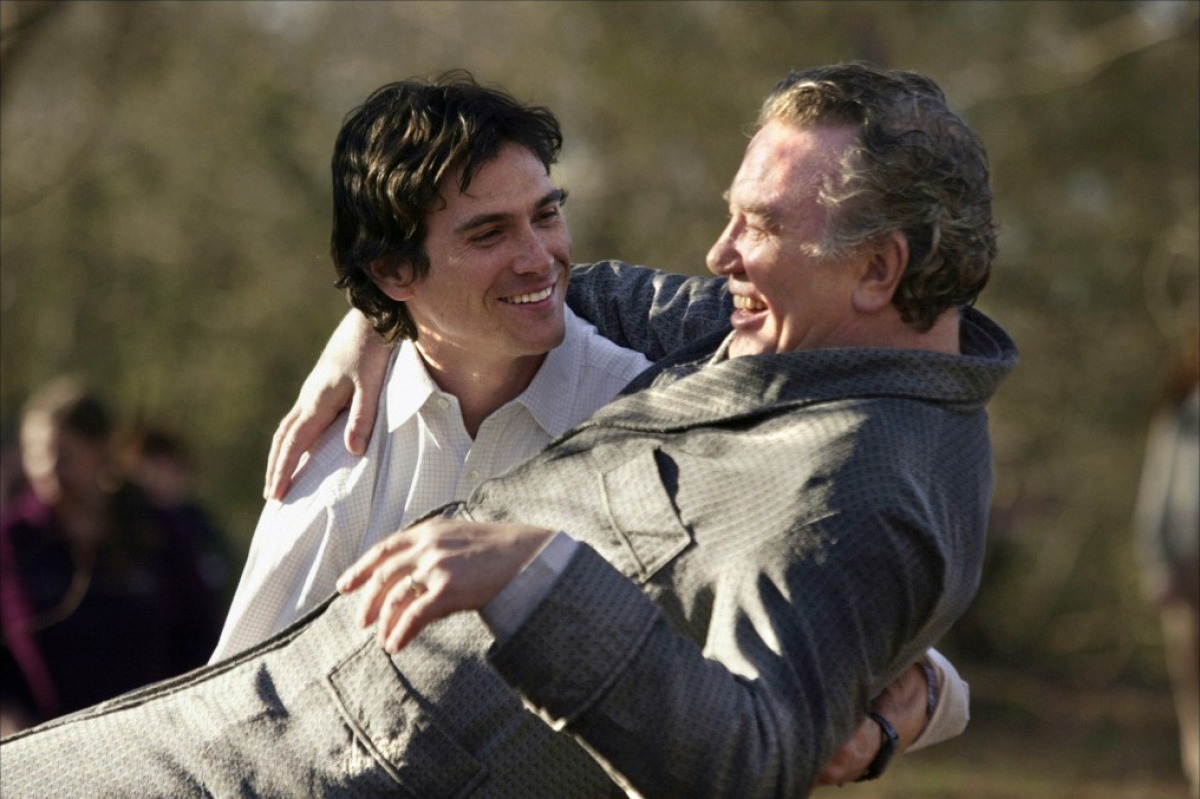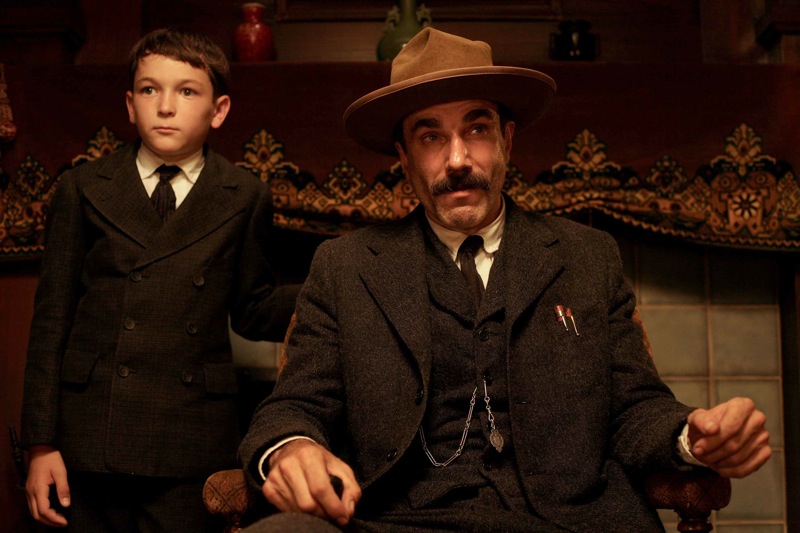18. In the Name of the Father (1993)
Fathers and sons may find themselves at odds with each other or the world or both but when the situation in which they find themselves involves both of them being inmates in the same prison that takes everything to a whole new level.
Based on a true story, Gerry Conlon (Daniel Day-Lewis) and his father Giuseppe (Pete Postelwaite) , who live in Belfast, don’t exactly have a great relationship. In fact, Gerry is into all sorts of major mischief (stealing being a big item on the list), and the father decides that an indefinite stay with an aunt in London would be best, something the kid isn’t thrilled about.
However, as things happen, an indefinite stay with auntie becomes the least of anyone’s worries when the British police get the idea that Gerry was part of a group of IRA bombers and that dad and his aunt’s family helped to facilitate the affair and arrest all of them, largely due to a confession Gerry gave under prolonged torture. (This is especially ironic since Giuseppe had returned to the country from abroad while trying to help Conlan.)
The larger part of the drama deals with social injustice but the core of this film is the redemption of the troubled father-son relationship as the two men struggle to survive inside the prison and must learn to work through many bitter feelings which have accumulated over the troubled years of their time together.
Sadly, a tragedy involving the pair will provide the mainspring through which justice is eventually served and the son’s eventual triumph will become a heartrending triumph on behalf of his father.
This film is blessed with fine direction (Jim Sheridan), writing, and acting (including Emma Thompson as the defense lawyer) but the superlative Day-Lewis and the wonderfully rough and craggy character actor Postelwaite truly give the film in a hauntingly memorable quality with their excellent work together.
19. A Perfect World (1993)
Sometimes dads and sons aren’t related by blood at all. Sometimes they may not even have a legal connection to one another. Sometimes adults and children can come to mean something to one another in the oddest of circumstances. A Perfect World explores just such a situation.
Hardened convict Butch (Kevin Costner) escapes from prison with accomplice Jerry (Keith Szarabajka) and hold up for a short time in a home containing a woman, her two daughters and her eight year old old, Phillip (T.J. Lowther). Since the two may need a bargaining chip they take the boy with them as a hostage. However, when Jerry tries to molest the boy, Butch kills him.
Now alone with Phillip, Butch discovers that the child is being raised in a strict religious sect that permits no celebration of holidays and very narrow definitions of right and wrong. The product of a miserable home life himself, Butch starts to show Phillip a little of the life they have both missed (such as stealing a Halloween costume for him)and starts to develop a relationship with they boy.
Meanwhile lawman Red Garnett (Clint Eastwood, also the film’s director) is closing in on Butch but can’t help but be struck by the outlaw’s relationship with the child.
A Perfect World is a heartbreaking film about two damaged souls who are able to bond for a little while and see something of a life they never had. Of course, what they find is a bit of a fantasy. If things had been different and they could have had a longer, better time together, could they have made it work as father and son?
That’s rather doubtful but many times in life what could have been and should have been and might have been if it were all different is so sweet to contemplate. At the end, Phillip has been shown a new horizon by Butch and the hope can be, as it often is with fathers for their sons, that the lessons taught will make a better man in the end.
20. The Lion King (1994)
Disney animated films had been in the doldrums from Walt Disney’s death in 1966 until the studio reinvented the form with Broadway style musical films in the 1980s. One of the most popular and enduring is this film, a kid’s adaptation of Hamlet by way of the Japanese animated series Kimba, the White Lion.
In this version, royal lion cub Simba just can’t get over the fact that one day he’ll be king of the jungle. His envious uncle Scar can’t get over it either and he arranges for the demise of Simba’s father and, he thinks, of Simba himself. Of course Simba is far from dead but he does know that’s he’s in a bad spot.
With the help of resourceful friends the little cub will not only avenges his father but grows to learn that position comes with responsibility and inheritance by its nature involves adherence and respect for the heritage of the legacy.
None of this is new but distilled to its simplest form this primal tale exerts a powerful appeal. The fact that its set in Africa, the cradle of life, makes the effect all the more powerful. This film was later adapted into a smash hit musical on Broadway staged by the magnificently resourceful Julie Traymor. When asked if she could do the same for other Disney films she answered no, that this was the one that had the depth and feeling to make such a show possible.
21. Life is Beautiful (1997)
Italian cinema often shows an absolute genius for combining comedy and tragedy in a manner that not only isn’t peculiar or offensive but, instead, is illuminating and touching. Fellini had this ability and in this Oscar winning film so did Roberto Bernini, know previously only as a comic actor and film maker.
The film’s plot is taken from Bernini’s own family history. Bernini himself plays Guido a humble Jewish bookseller who is taken to a concentration camp during the World War II era along with his small son Giosue (Giorgio Cantarini) while on an outing away from wife/mother Dora (Nicoletta Brashci, Bernini’s actual wife).
Guido is a somewhat comical man but he is a good and loving father and the thought of his child being scared by the horrific place in which they have been interred brings his mental resources to the fore and he cleverly tells the child that they are taking part in a gigantic game.
Sadly, it is no game and the ending isn’t happy for all but the father preserves his child to be reunited with his mother. The film, in the end, is a touching cross generational labor of love centering on the love of father and son.
22. The Royal Tenenbaums (2001)
The films of Wes Anderson often center around family life and how difficult inter-family relationships can be. Perhaps no Anderson film focuses on this more than The Royal Tenenbaums.
The Tenebaums children, sons Chas and Richie (Ben Stiller, Luke Wilson) and adopted daughter Margot (Gweneth Paltrow) all start off in life like houses a-fire. Too bad each and every fire burns right out and all three end up experiencing what might be termed “second-act problems”.
Maybe it had something to do with dad Royal (Gene Hackman) skipping out on mom Etheline (Anjelica Huston) at about the point that they might have used some guidance concerning adult life. Well, after several years adrift rascally Royal is down to dust and hears that Etheline is about to marry someone worthy of her, Henry (Danny Glover).
Though not exactly repentant, Royal devises a pretty underhanded scheme to try and get back in everyone’s good graces before he’s replaced entirely. He gets much more than he bargained for with his now truly messed up brood with their myriad of problems.
Here is another story about an errant and largely absent father and what place he may or may not deserve in his family’s life. Yes, Royal is flawed (to say the least) but his family isn’t easy to embrace either. In the end, he and they must all learn to accept and tolerate one another.
It’s pretty clear that if Royal could do it all over again…well, he’d probably do pretty much the same things all over again. However, he’s not a terrible person and he does seem to have some love for his family (his grandsons Ari and Uzi, however, seem to be able to see that a bit more clearly than the others). Hey, what real life family doesn’t have a problematic dad (and/or mom)?
23. Road to Perdition (2002)
This Depression-era crime drama looks at the rather devastating effects fathers may have on sons as it features two flawed father figures, one biological, the other emotional.
Michael Sullivan Sr (Tom Hanks) was a orphan brought up by mob boss John Rooney (Paul Newman, in his final film appearance). He has repayed Rooney by becoming his blindly loyal “enforcer”, much to the chagrin of Rooney’s biological son Connor (Daniel Craig), who is definitely held in lesser esteem to Sullivan by the senior Rooney.
Connor has come up with a scheme to defraud the father he so resents, one which will also smear Sullivan, whom Connor plans to have killed as part of the scheme. Things don’t go quite as Connor expects and Sullivan escapes being killed, though Connor does end up killing Sullivan’s wife and younger son, leaving Sullivan on the run with his older son and namesake (Tyler Hoechilin).
The plot of the film is a bit complicated but the moral is clear: father figures can have a huge and detrimental influence on their sons. Though Rooney was a more caring father figure to Sullivan, Sr than to Connor, the corrupt man in the end failed both of them by leading them into lives no decent father would want for his son.
Sullivan, Sr, with no other guide from which to learn to be a father, tries much harder to be a good father to his son but the sorry circumstances of his own life drag the boy into events no developing young man should have to witness, much less have to experience The viewer learns at the end that Sullivan’s greatest wish was for his son not to be like him, and the son at least appreciates that and chooses not to judge his father’s misbegotten life.
24. Big Fish (2003)
Tim Burton at his best has a genius for creating films that seem like fairy tales or fables for adults (albeit adults with a big childlike streak). It was his good sense and taste to realize that a story about a father who tells tall tales would be a good match for his talents. After all, who, when he puts his mind to it, can tell taller tales about his youth than a dad?
The film opens on the wedding day of writer Will Bloom (Billy Crudup), who is quite exasperated by the fact that dad Edward (Albert Finney in the present and Ewan McGregor in the past) is telling his usual litany of whoppers for the umpteenth time. And whoppers they are since each story sounds more like something out of a fairy tale than anything that could ever plausibly happen.
With a sudden illness as a catalyst, Will goes investigating and finds that while the stories Edward has told indeed aren’t true that his father was a remarkable man in a quieter way and also a very loving man to his wife Sandra (Jessica Lange). The truth is revealed that Edward’s stories were his coping mechanism in the face of a life burdened with responsibilities.
Big Fish, colorful as it is, ends up as the most heartfelt of Burton films. Edward learns, as many sons must, that dad is a human being like any other and as imperfect as any other and may have ways that drive others crazy as any other person. Will, like most sons, must learn to also see his father as a human being and accept that he, too, like his father, has his quirks but also his positive qualities as well.
25. There Will be Blood (2007)
In many ways There Will Be Blood is one of the most powerful selection on this list and perhaps the most tragic. The film is ostensibly derived from a novel by Upton Sinclair but it really has its origins in California history, principally the lives of those who built great fortunes there in the late 19th and early 20th centuries, often at great costs to those around them and the men themselves.
Daniel Day-Lewis gives a magnificent performance as Daniel Plainview, a mining prospector and one tough customer. Plainview breaks his leg falling down a mine shaft but finds a silver deposit and drags himself out of the pit and several miles to an assay office to file his claim before seeking medical help! Obviously this man loves money and will do whatever it takes to get his share of it and then some.
That fact becomes even clearer when he strikes oil at one of his subsequent mining locations and decides to go into that business. While setting up his oil business a worker is killed in an accident and Plainview decides to adopt the man’s orphaned son, H.W, (Dillon Freasier when young/Paul Harvard when older).
It may seem like Plainview, who has made no time for a wife, may be longing for some sort of family experience but it becomes alarming plain with the years that he only adopted the boy in order to use him as a prop for selling the public and those doing business with Plainview on the specious fact that he’s a “family man”.
The unloved boy is eventually rendered deaf in another accident and after committing an anger fueled act his is sent off to a school for the deaf and promptly forgotten. The next and final time he sees his adopted father they must communicate through an interpreter since Plainview has never learned the sign language the young man uses.
The purpose of the visit is for H.W to ask for a small concession from his adopted father which would mean little to nothing to Plainview but could help the young man enormously. Plainview’s cruel response is devastating and H.W leaves him with the remark that he is happy to actually have none of Plainview’s blood.
Here, then, is the story of a father in name only. Plainview goes to hell in a big way as he climbs the ladder of success and in the end only the damage and fear his money and power can inflict give him any satisfaction at all. Sadly, the world contains such men and such men sometimes have sons who are left to feel as H.W does in the film. While other films may tell of parental love gone wrong this film tells of the trauma of having no love at all.
Author Bio: Woodson Hughes is a long-time librarian and an even longer time student/fan of film,cinema and movies. He has supervised and been publicist for three different film socieities over the years. He is married to the lovely Natalie Holden-Hughes, his eternal inspiration and wife of nearly four years.”
